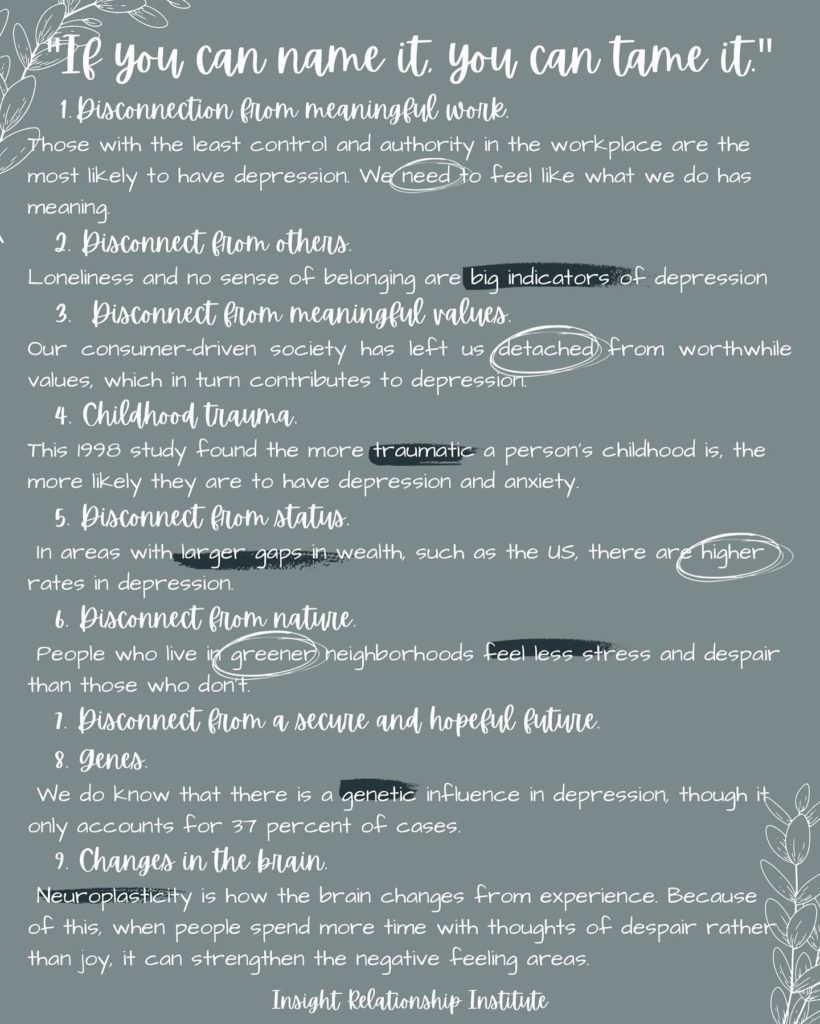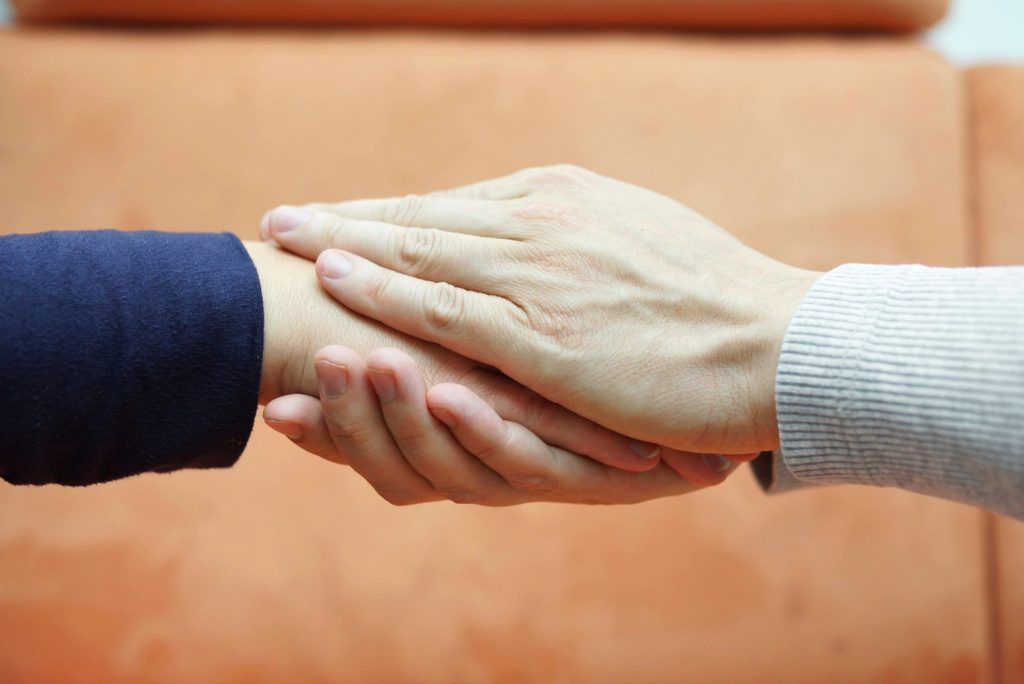I do various mental health presentations throughout my personal community in various settings (schools, business/professional groups, youth groups, church groups, women’s groups, etc.). One of the most requested topics that I speak on is the topic of ‘depression and anxiety’. One of the ways I like to open up this particular presentation is by asking the question:
“How many of you have heard that depression and anxiety are caused by a chemical imbalance in your brain?”
It is interesting, that without fail, almost every hand in the group is always confidently raised. I then ask the follow up question that is visibly confusing and even upsetting to the group:
“How would you feel to learn that this concept is only an unproven theory?”
I start these presentations in this way to emphasize the importance of individuals researching and finding substantial and accurate information regarding the mental/emotional struggles they are having. I also significantly stress that if individuals are suffering from depression and anxiety, it is important to have an open mind in regards to what treatment options are out there that actually have the LIKELIHOOD of benefiting their personal journeys towards healing and recovery. Unfortunately, the incorrect narratives regarding what causes depression and anxiety is driving many to take medications that may not be the most helpful and effective treatment for them.

I have recently had the opportunity of reading the book, “Lost Connections; Uncovering the Real Causes of Depression–And the Unexpected Solutions” by Johann Hari. This book is an excellent resource for those that struggle with depression and anxiety and are seeking effective treatments for their personal struggle. Hari also discusses his own experience with taking SSRI medications for over thirty years and why he was driven to research and find out the truth about these medications and their effectiveness with treating these specific mental health issues.

In his book, Hari chronicles the fascinating research journey of Irving Kirsch (one of the leading research experts in the field of science in the 1990s) regarding the effectiveness of antidepressant medications. In regards to that theory and based off of the work and research of Kirsch, Hari states:
“After twenty years researching this at the highest level, Irving has come to believe that the notion depression is caused by a chemical imbalance is just “an accident of history,” produced by scientists initially misreading what they were seeing, and then drug companies selling that misperception to the world to cash in. And so, Irving says, the primary explanation for depression offered in our culture starts to fall apart. The idea you feel terrible because of a “chemical imbalance” was built on a series of mistakes and errors. It has come as close to being proved wrong, he told me, as you ever get in science. It’s lying broken on the floor, like a neurochemical Humpty Dumpty with a very sad smile”.
Hari, Johann. “Lost Connections” (2018). ‘Imbalance’ pages 29-30.
WHAT CAUSES DEPRESSION AND ANXIETY
As a mental health professional, I have witnessed the debilitatiing effects of depression and anxiety in the lives of my clients, my family members, and my friends whom I care deeply for. These struggles are real. Their effects are real. Their symptoms are real. So, if depression and anxiety are not caused by a chemical imbalance in the brain, what is the cause? That answer is going to be VERY unique and individual to each person and their circumstances. This is where an individual could highly benefit from seeking individual counseling from a mental health professional that specializes in treating depression, anxiety, and trauma.
Although this is not ‘all inclusive’, Hari put together a list of nine main contributers of those individuals who struggle with depression and anxiety. The more of these items a person can identify with, the more likely they are to struggle with depression and anxiety. This list can serve as a tool for individuals to start formulating into their own words the parts and pieces of their current lives and their pasts that are in need of processing and healing. As my colleague Amy Fife LPC and I often say to our clients, “If you can name it, you can tame it.” Making these needed connections on this list can help guide the therapy process and get individuals the unique treatment they are in need of.

EFFECTIVE TREATMENTS: (Reconnection Is The Real Anti-Depressant)
“We are the loneliest society in human history.” – Johann Hari
Watch the following Ted Talk by Johann Hari regarding the effectiveness of “Reconnection” as the solution to the underlying problem of depression and anxiety. Hari coins the phrase: “Reconnection, a different kind of anti-depressant”.
The following bullet points are particular areas where Hari’s research has shown that ‘Reconnection” can help individuals in regards to a significant and effective decrease in depression and anxiety symptoms.
- Areas of Focused Reconnection:
- Reconnect to Meaningful Work
- Reconnect to Nature
- Reconnect to Joy and Overcoming the Self (any Addictions)
- Reconnect to Acknowledging and Overcoming Childhood Trauma
- Reconnect to a Mindset of Hope for the Future
- Reconnect to Others
“We are hard wired to connect with others, it’s what gives purpose and meaning to our lives, and without it there is suffering.” – Brene` Brown
In my practice, I specialize in treating women’s issues and trauma. I have seen clients have great success in regards to individual treatment but when my clients combine their individual treatment with participation in one of our female support groups, their recovery is noticeably deeper combined with a substantial increase in sustainability. We believe that is due to the increased connection the women feel to one another within their group experience. Connection is the key to healing so many of the heartaches we as humans experience during our lives here on earth. Connection often does not take the hardship away, but it makes it tolerable and can even help make our difficult experiences opportunities for our personal growth and progression vs. our mental and emotional “undoing”.
“A deep sense of love and belonging is an irreducible need of all people. We are biologically, cognitively, physically, and spiritually wired to love, to be loved, and to belong. When those needs are not met, we don’t function as we were meant to. We break. We fall apart. We numb. We ache. We hurt others. We get sick”.

